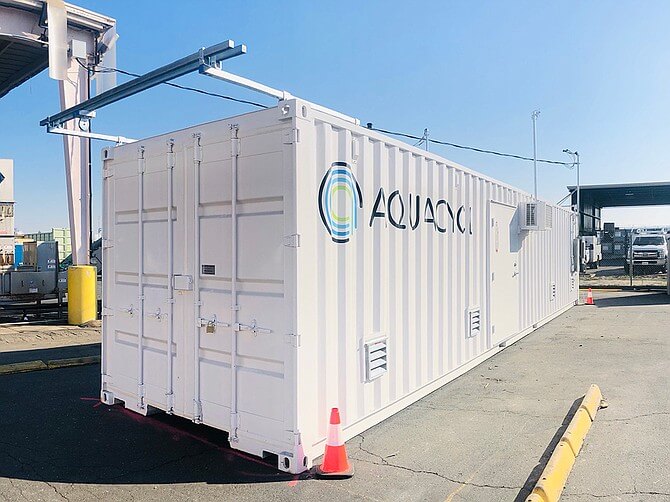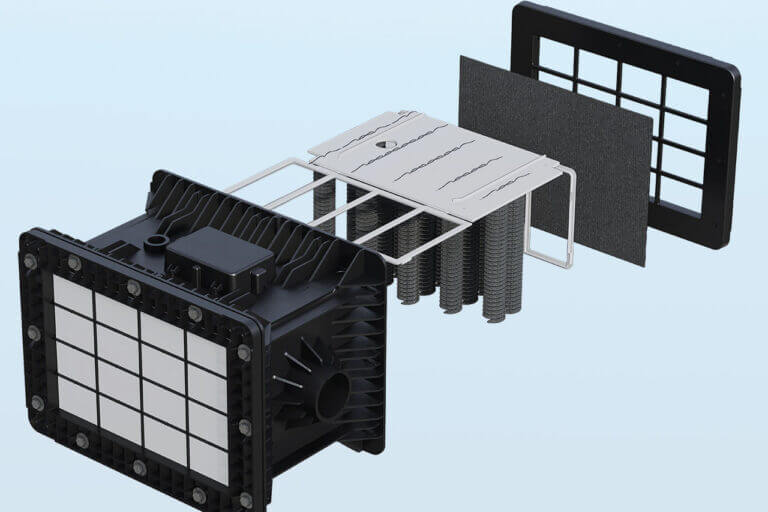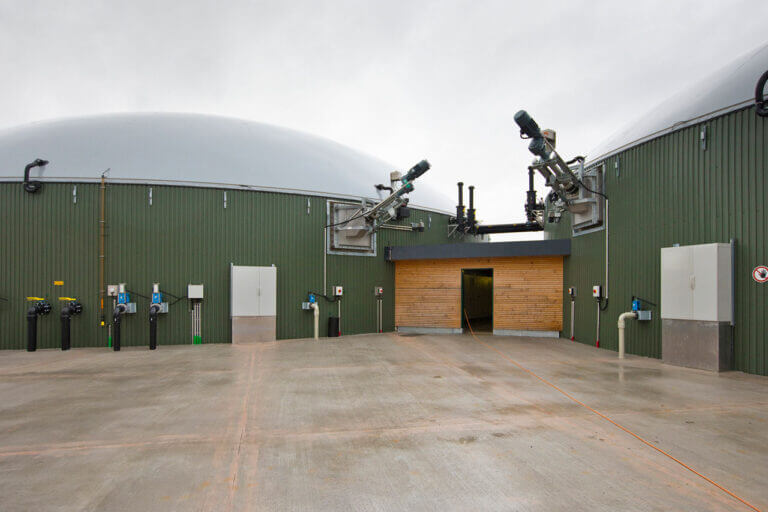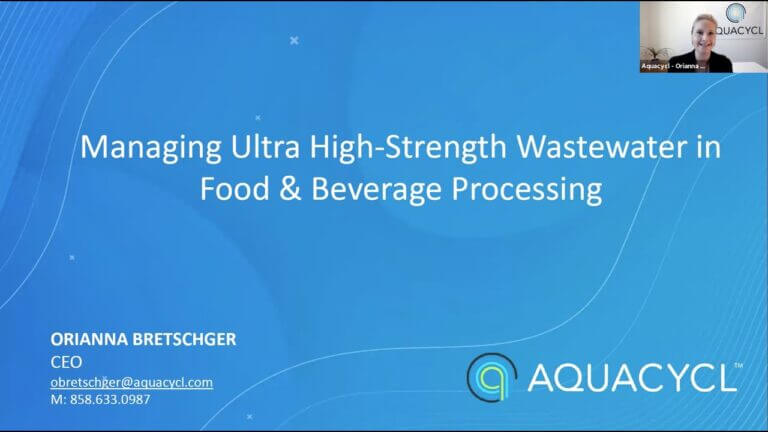When managing wastewater, compliance tends to be the ultimate goal. It’s like paying taxes – just fulfill the requirements and you’re in the clear, right? Well, not quite. The truth is, simply striving to be compliant is not enough to save on costs, obtain operational efficiency, reduce business risks, and uphold sustainable practices.
Compliance is really just the beginning. Let’s dive into why settling for compliance in wastewater management might not be the wisest strategy and explore how surpassing regulatory standards can yield significant benefits for both your business and the environment.
Compliance Doesn’t Equal Efficiency
When stiving for operational efficiency, simply meeting compliance requirements won’t get you there. Compliance doesn’t guarantee efficient wastewater treatment or resource utilization. In fact, the energy and carbon emissions with merely meeting regulatory standards can have long-term repercussions, both environmentally and economically.
Conventional wastewater treatment methods often involve aerating large ponds or diluting volumes to achieve compliance. While these methods may fulfill regulatory requirements, they’re far from efficient. They consume significant energy and resources, and are simply not the most efficient methods to treating all wastewater streams. The aeration process uses significant energy to push air through water and generates secondary sludge waste volumes that must be hauled away and disposed. Dilution uses cleaner water to lower pollutant concentrations in wastewater, negating any water efficiency in your processes, and potentially increasing your utility bill.
If you’re not paying attention to the pollutants and volumes of your wastewater, you won’t be treating it efficiently. It’s a short-sighted strategy that prioritizes immediate compliance over long-term business sustainability.
The Risk of Business as Usual
Operating with a ‘business as usual’ mindset when it comes to wastewater management can be risky. Compliance isn’t a one-and-done deal; regulations evolve, and what is considered compliant today may fall short tomorrow. Failure to adapt to changing regulatory landscapes can expose companies to unforeseen risks and costs – and changes can come without warning.
The consequences of noncompliance are substantial. Businesses face fines, legal repercussions, damage to their reputation, and even production shutdowns. Ensuring compliance, and the ability to maintain compliant amidst changing conditions, is imperative.
However, adhering solely to compliance standards poses other risks. How adaptable is your wastewater management system to variable production or impacts from a changing climate? Fluctuations in volumes and pollutants could render your treatment ineffective, jeopardizing compliance. Have you considered the risks associated with wastewater hauling? If a spill occurs in transport, the liability falls on your shoulders; if the trucking company can’t take your wastewater, you’re left without a solution. What about how your practices affect consumers? Environmentally-conscious consumers may scrutinize your reputation and choose not to purchase your product if sustainable practices are not integrated throughout your operations, including wastewater management.
To avoid these risks, your wastewater management needs to be holistic, taking into consideration all aspects that can put you at risk.
The Virtue of Overcompliance
Rather than viewing compliance as a minimum requirement, companies should strive for overcompliance – exceeding regulatory standards through innovative solutions and best practices. Embracing this mindset unlocks a myriad of benefits, from cost savings to reputational rewards.
For instance, a simple innovation is stream segregation. Instead of treating entire volumes of wastewater uniformly, companies can adopt a targeted approach through flow segregation. By identifying and treating smaller volumes with specific contaminants, facilities can achieve compliance more efficiently, reducing energy and resource consumption in the process. This approach is similar to the concept of separating trash into recycling and non-recycling bins, each receiving targeted disposal methods that is specific to the wasted material, while enhancing sustainability.
Similarly, investing in innovative technologies that offer sustainability benefits can yield significant efficiency gains while ensuring regulatory compliance. There are many new technologies and methods to treating wastewater, yet the application landscape for treatment has remained largely unchanged. While conventional treatment methods help reach compliance, these innovative approaches can take you the step further needed to bring long-term benefits to your business.
Contractualization: A Path to Long-Term Sustainability
Another avenue for companies to navigate the complexities of wastewater management while promoting sustainability and cost-efficiency is through contractualization. By partnering with experienced service providers, companies can secure long-term agreements that go beyond mere compliance.
Through contractual service arrangements, companies gain access to expertise, technology, and resources tailored to their specific needs. Service providers can offer guarantees on compliance while optimizing processes to minimize energy consumption, reduce carbon emissions, and maximize resource recovery and allocations. This proactive approach not only mitigates regulatory risks but also enhances the triple bottom line.
Aquacycl’s Treatment as a Service
Combining an innovative technology with an innovative business model, Aquacycl offers a holistic approach to treating wastewater that goes beyond compliance. By incorporating our BioElectrochemical Treatment Technology (BETT) – the only technology able to treat high-strength, segregated streams – with a treatment as a service model, we provide a hassle-free solution for companies seeking to exceed compliance standards.
How do we do it? We provide a 100% compliance guarantee, even under changing regulatory landscapes, because we are so confident in our technology treating your wastewater. The BETT system is energy- and carbon-neutral providing you with GHG and cost reductions for your wastewater management. The system is remotely monitored and controlled, and we provide onsite personnel when needed, reducing risks and costs for your operations.
For wastewater management, compliance is just the beginning. To truly thrive in a rapidly evolving regulatory landscape, companies must embrace innovation, efficiency, and sustainability. By going beyond compliance and adopting a proactive, forward-thinking approach, companies can not only mitigate risks but also unlock new opportunities for cost savings, operational excellence, and environmental and business sustainability. Remember, compliance might keep the regulators at bay, but it’s efficiency and sustainability that will propel your business towards long-term success.
Don’t settle for compliance alone – schedule a free consultation today.











